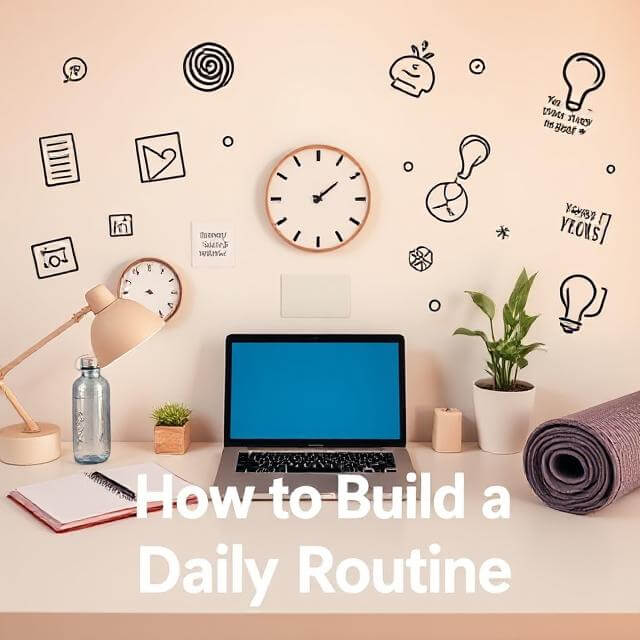How to Handle Stress Effectively: A Complete Guide to Managing Pressure in Everyday Life
Introduction
Stress is an inevitable part of life. Whether it’s deadlines at work, academic pressure, financial concerns, or personal conflicts, everyone experiences stress at different levels. However, what sets successful and emotionally healthy individuals apart is not the absence of stress but how they handle it. Learning how to manage stress effectively can lead to better physical health, emotional balance, and overall well-being. In this comprehensive guide, we’ll explore what stress is, why it affects us, and most importantly, how to handle stress effectively through practical, science-backed strategies.
1. Understanding Stress: What Is It ?
Stress is your body’s natural response to any demand or threat. When you perceive a challenge or danger, your body activates the ‘fight-or-flight’ response, releasing stress hormones like cortisol and adrenaline. While this response is helpful in emergencies, chronic stress can harm your health.
Types of stress:
- Acute Stress: Short-term, arises from immediate challenges.
- Chronic Stress: Long-term, arises from ongoing situations like a difficult job or relationship.
- Episodic Stress: Frequent acute stress episodes.
Recognizing the type of stress you’re experiencing is the first step in managing it effectively.
2. Common Causes of Stress
Understanding the root of your stress is crucial for managing it. Some common causes include:
- Work or academic pressure
- Financial difficulties
- Health concerns
- Relationship issues
- Major life changes (e.g., moving, job loss, divorce)
- Social media and digital overload
Once you identify your stressors, you can begin creating strategies to address them directly.
3. Physical and Emotional Signs of Stress
Physical symptoms:
- Headaches
- Fatigue
- Upset stomach
- Muscle tension
- Sleep disturbances
Emotional symptoms:
- Anxiety
- Irritability
- Depression
- Feeling overwhelmed
- Difficulty concentrating
Recognizing these signs early helps prevent stress from becoming chronic.
4. The Impact of Chronic Stress on Health
If not managed, chronic stress can lead to serious health issues:
- Cardiovascular problems (high blood pressure, heart attacks)
- Weakened immune system
- Weight gain or loss
- Digestive issues
- Mental health disorders like anxiety and depression
It’s essential to incorporate daily stress-reduction techniques to mitigate these effects.
5. How to Handle Stress Effectively: Practical Strategies
A. Practice Mindfulness and Meditation
Mindfulness involves staying present and fully engaging in the current moment. Regular practice reduces anxiety and increases emotional regulation.
- Apps: Headspace, Calm, Insight Timer
- Techniques: Deep breathing, body scans, guided meditation
B. Physical Activity
Exercise releases endorphins, which are natural mood lifters.
- Aim for 30 minutes a day
- Activities: Walking, jogging, swimming, yoga, dancing
C. Time Management
Poor time management leads to last-minute rushes and pressure.
- Use planners or digital calendars
- Break large tasks into smaller steps
- Prioritize using the Eisenhower Matrix
D. Build a Support System
Social connections are key to managing stress.
- Talk to friends and family
- Join support groups
- Seek professional help when needed
E. Journaling
Writing about your thoughts and feelings helps process emotions.
- Maintain a gratitude journal
- Reflect on challenges and how you overcame them
F. Healthy Eating
Diet impacts mood and energy levels.
- Avoid caffeine, alcohol, and sugar during high-stress times
- Eat whole foods, fruits, vegetables, lean proteins
G. Get Quality Sleep
Sleep is restorative and essential for emotional regulation.
- Aim for 7–9 hours per night
- Create a calming bedtime routine
- Limit screens before bed
H. Learn to Say No
Taking on too much can overwhelm you.
- Set boundaries
- Understand your limits
- Focus on your priorities
I. Engage in Hobbies
Hobbies provide joy and a sense of achievement.
- Painting, music, gardening, reading
- Take time for activities that recharge you

6. Cognitive Behavioral Techniques (CBT)
CBT helps reframe negative thinking patterns:
- Identify distorted thoughts (“I’m a failure”)
- Replace with realistic ones (“I made a mistake, but I can improve”)
- Practice self-compassion and positive affirmations
CBT is highly effective and can be practiced with or without a therapist.
7. Relaxation Techniques
Simple techniques to immediately lower stress:
- Progressive Muscle Relaxation (PMR)
- Visualization: Imagine a peaceful place
- Deep Breathing: Inhale for 4, hold for 4, exhale for 4
Use these when you feel stress building up during the day.
8. Digital Detox
Constant notifications and screen time heighten anxiety.
- Take screen-free breaks
- Set app limits or use focus modes
- Spend time in nature or with loved ones
9. Create a Stress-Relief Routine
Design your daily and weekly routine to include:
- Exercise
- Sleep schedule
- Time for hobbies and family
- Evening wind-down activities
Consistency helps your body and mind anticipate relaxation periods.
10. Seek Professional Support When Needed
Sometimes, stress becomes too much to handle alone.
- Therapists and counselors offer structured support
- Support groups provide community
- Medication (only if prescribed by a professional) may help in severe cases
There’s no shame in asking for help.
11. Tips for Handling Stress in Different Scenarios
Workplace Stress
- Prioritize tasks
- Take microbreaks
- Communicate clearly with colleagues
Academic Stress
- Create a study schedule
- Take practice tests to build confidence
- Talk to a mentor or teacher
Relationship Stress
- Practice active listening
- Avoid assumptions
- Seek couple’s therapy if needed
Financial Stress
- Make a realistic budget
- Save a little every month
- Talk to a financial advisor
Health-Related Stress
- Focus on what you can control (diet, rest, follow-ups)
- Educate yourself about the condition
- Join support groups
12. Preventing Stress Before It Starts
- Plan ahead for busy periods
- Avoid procrastination
- Build habits that support resilience (meditation, journaling, gratitude)
- Maintain a balanced lifestyle
Conclusion
Handling stress effectively is not about avoiding it altogether, but learning to navigate it wisely. From mindfulness to proper time management, there are countless strategies you can use to take back control of your mind and body. Consistency is key—these techniques take time to show full results. Begin with small steps, stay committed, and over time, you’ll build resilience to handle life’s stressors with strength and grace.
For more expert-backed strategies and personal development guides, visit Sufficient Notes—your trusted source for self-growth, productivity, and success.
Also Read on Sufficient Notes:
- How to Plan Your Day Efficiently
- How to Master Self-Control
- The Art of Deep Work
Stay strong, stay focused, and always put your mental health first.






